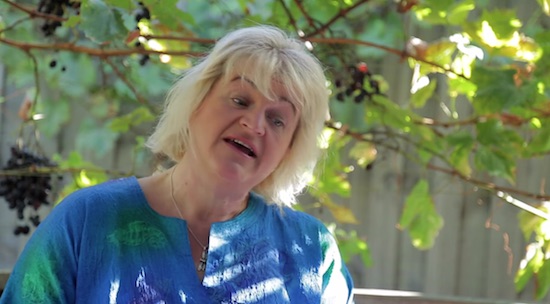
This almost 2-hour long interview was recorded in Samuel Alexander‘s backyard in a Melbourne suburb in April 2015. Part of it is slated to be used in a documentary called “A Simpler Way: Crisis as Opportunity”, written and produced by Jordan Osmond and Samuel Alexander. The documentary is set for release in April 2016. (Kudos for picture and sound quality, guys!)



The fimmakers about their project:
The purpose of the documentary is to unflinchingly describe the overlapping crises of industrial civilisation and explain why a ‘simpler way’ of life, based on material sufficiency not limitless growth, signifies the only coherent response to those crises. The dominant mode of development today seeks to universalise high-consumption consumer lifestyles, but this is environmentally catastrophic and it has produced perverse inequalities of wealth. Even the privileged few who have attained material affluence rarely find it satisfying or fulfilling, because consumerism just leaves people feeling empty and alone. Consequently, our forthcoming documentary seeks to show why genuine progress today means rejecting consumerism, transcending growth economics, and building new forms of life based on permaculture, simple living, renewable energy, and localised economies.
But what does that mean? And how should we go about building a new world? Mainstream environmentalism calls on us to take shorter showers, recycle, buy ‘green’ products, and turn the lights off when we leave the room, but these measures are grossly inadequate. We need more fundamental change – personally, culturally, and structurally. Most of all, we need to reimagine the good life beyond consumer culture and begin building a world that supports a simpler way of life. This does not mean hardship or deprivation. It means focusing on what is sufficient to live well. The premise of our documentary is that a simple life can be a good life.
One of the main concerns driving this documentary, and the Wurruk’an project more generally, is the uncomfortable realisation that even the world’s most successful ecovillages have ecological footprints that are too high to be universalised. In other words, even after many decades of the modern environmental movement, we still don’t have many or any examples of what a flourishing ‘one planet’ existence might look. This is highly problematic because if people do not have some understanding of what sustainability requires of us or what it might look like, it will be hard to mobilise individuals and communities to build such a world. A Simpler Way represents an attempt to envision and demonstrate what ‘one planet’ living might look like and provoke a broader social conversation about the radical implications of living in an age of limits.
We hope that this documentary will challenge and inspire people to explore a simpler way of life and to begin building sufficiency-based economies that thrive within planetary limits. If you feel this is a worthwhile film for social change, please support our project by donating here [link coming soon] and sharing the link with your networks.








Home › Forums › Interview Nicole Foss for ‘A Simpler Way: Crisis as Opportunity’